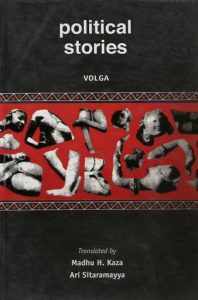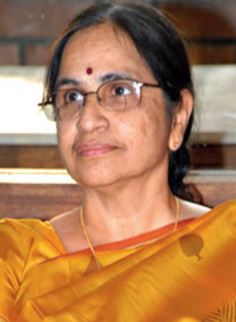Political Stories by Volga

Translator’s Foreword
In the author’s introduction Volga offers an explanation for the urgent tone of her short stories and situates her writing and its thematic concerns in relation to Telugu culture and literary tradition. It is in order to facilitate access to and appreciation of these stories for such a reader who approaches the text in English and from outside the Telugu or Indian literary tradition that I provide this brief foreword.
In trying to approach these stories on their own ground it may be useful to consider questions of genre and local literary practice. Telugu short story has generally reflected the history of the Telugu society, documenting major events and recording movements that shaped it. Feminist literature, including short story, became a major strand of Telugu literature beginning the early 1970s. Volga has been a prominent voice in this strand as a poet, novelist and short story writer. In her stories, and in Telugu short fiction in general, both narrative and exposition are often intermingled and both showing and telling are privileged. Telugu short fiction often retains rhetorical force and social consciousness that have been dropped in contemporary western literatures, or have been reserved for creative non-fiction and essays. Since the stories attempt to fulfill both a narrative and a persuasive purpose, they necessarily include some didactic elements.
It is also useful to keep in mind that there is a good deal of literature in Andhra Pradesh (and in many parts of the world) that circulates through popular periodicals. The reader will find, in fact, that many of the stories included in this collection were initially published in newspapers and magazines such as Eenadu, Andhrajyothi, Maanavi and India Today. What I am trying to suggest is that literature in Telugu society has a relatively wide reach thanks to its inclusion in weeklies and regional and national magazines. Fiction and poetry are found in newspapers alongside national and local news stories, sports pages, weather reports, entertainment listings and so on; it circulates as part of the public arena and social world that newspapers and magazines create. Literature here has not retreated to the private sphere; it is engaged in public discourse. In reading Volga’s stories we can clearly sense this public role of literature.
The stories in this collection, however, are not simple social commentaries or editorials in the guise of fiction. These stories do not supplant the present patriarchal order with a feminist order; nor do they supply quick and easy resolutions to the societal difficulties that women face. We do not witness feminist revolution and victory. But to Volga’s credit, this is in fact one of the strengths of these stories, since to provide easy answers would be to betray the ethical imperative of these stories and the characters they portray. Rather, throughout these stories Volga follows the development of the female characters and traces how they become more self reflective as well as critical about the societal injustice and inequality around them. These stories abound in uncertainties and many end on an ambiguous note. Often it is a note of questioning, which is itself a promising sign.
The focus on the body, and in particular, on its “parts” in this collection highlights the way in which the character herit distorted and fragmented ideas about their own bodies The body is to be compliant and contained. To speak, sing or laugh is often enough to threaten the patriarchal order. To think, to question is equally subversive. At the end of the story “Shut Up,” for instance, we are told that the main character, Janaki, “could not contain herself. The laughter did not stop until it turned into a sob.” In response to her outburst her husband yells “Shut Up! Shut Up!” The simple assertion of her own spirit, the laughter and the sobs, is enough to enrage her husband and make him feel that he has lost control over his wife. Laughter, in particular, that unreadable sign of inner joy destabilizes the domestic power structure. Indeed, throughout these stories what we see is women and girls who cannot continue to be contained. They begin to speak, think, shout, and laugh without shame.
Political Stories don’t suggest that these characters have completely mastered their circumstances or overcome their problems. Instead the stories highlight the development of critical awareness and the process by which one begins to question societal norms. In fact, several stories such as “Sita,” “Eyes” and “Nose-Stud” end in questions posed by the main characters. This questioning is itself transformative. For they reflect moments of awakening in which a woman begins to think, and perhaps act, differently. In such moments, we see the possibility of change, the possibility of a different society.
Madhu H. Kaza June 14, 2007
*****
(To be Continued-)



